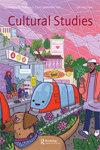蒂芙尼·波拉德动图和对消极的怀念
IF 1.2
3区 社会学
Q1 ANTHROPOLOGY
引用次数: 0
摘要
摘要本文探讨对特定黑人女性在电视真人秀中的表演的怀旧依恋如何通过网络动图和表情包影响这些图像的当前使用。通过研究2000年代中期电视真人秀明星蒂芙尼·波拉德(Tiffany Pollard)在Twitter上的使用和交换文件,我比较了数字空间对黑人女性幽默的挪用和对“糟糕电视”的欣赏[McCoy, C.A, and Scarborough, r.c., 2014]。看“坏”电视:讽刺消费、露营和罪恶的乐趣。《诗学》,2018,(4):1 - 5。双重否定:黑人形象与大众文化。杜克大学出版社]。当数字图像和文件通过种族化的性别表演引发怀旧反应时,关于代表性政治的辩论变得复杂。这些动图和表情包的传播说明了人们对电视真人秀中“棘轮”行为的独特时刻的怀旧[布洛克,a ., 2020]。分布式的黑暗。(纽约大学出版社)受到了鼓励,并对体面政治的局限性进行了试验?研究一些人如何将这些动图的交换标记为永久的“数字黑脸”[Jackson, l.m., 2017]。我们需要谈谈反应动图中的数字黑脸。《青少年时尚》(Teen vogue), 2],我的理论是,当代对利用黑人的刻板形象来获得在线社会资本的指责,反映了美国吟诗人对“真实的”黑人表演的所谓怀旧的历史。由于波拉德的大多数流行动图都呈现出“丑陋的感觉”[Ngai, S., 2005]。丑陋的感情。比如烦躁、怨恨和厌恶,对所谓的美好时代的怀念,以及对有线电视过去最近时刻的渴望之间的关系,在过去的时刻,“良好表现”的界限被突破和忽视,变得纠缠不清。通过使用动图作为循环、重构和循环的动态图像文件来观察无实体数字图像的动画,我提请人们注意数字种族化、流行文化批评和数字影响检查的新场所,因为它与黑人流散文化生产相对应。关键词:数字黑脸挪用数字影响模因数字反公众真人秀电视披露声明作者未报告潜在的利益冲突。这个账号,我有6个共同的关注者,但不是个人的“朋友”,截至2021/10/1有9932个关注者。其他流行的动图描绘了真人秀电视中的黑人女性表演,包括亚特兰大和波托莫克的真实家庭主妇,Cardi B和其他演员的照片爱与嘻哈,以及泰拉·班克斯美国超模大赛。有关真人秀节目中黑人女性流行表情包的更多信息,请参见:Warner (Citation2011, Citation2015), Kuo (Citation2019), Psarras (Citation2020)来源:https://www.flowjournal.org/2011/08/who-gon-check-me-boo/5 https://giphy.com/gifs/gaga-s-J6ctgPvnDpDi06 https://giphy.com/gifs/tiffany-pollard-flavor-of-love-yciyxv4B8vl9m7 https://giphy.com/gifs/real-housewives-new-york-read-PWT8AptmKh7TW8消除黑人酷儿和女性化的影响,以及越来越多地将AAVE与“网络语言”混为一谈,是黑人女性被诋毁的一个过程,而其他黑人女性则因使用这些词汇和手势而受到赞扬(Eberhardt和Freeman Citation2015, Barrett Citation2017, Ilbury Citation2020)。在这篇文章的范围之外,我们将进一步研究以白人酷儿为主的文化语言和手势源于黑人酷儿和跨性别社区的特定方式,并在数字交换中被翻译。本文章由计算机程序翻译,如有差异,请以英文原文为准。
Tiffany Pollard GIFs and nostalgia for the negative
ABSTRACTThis essay asks how the nostalgic attachments to particular Black women’s performances on reality television inform current uses of those images through internet GIFs and memes. Examining the usage and exchange of files depicting the mid-2000s reality television star Tiffany Pollard on Twitter, I compare appropriation of black women’s humour within digital spaces alongside appreciation of ‘bad television’ [McCoy, C.A., and Scarborough, R.C., 2014. Watching “bad” television: ironic consumption, camp, and guilty pleasures. Poetics, 47, 41–59] and the useful potentials of ‘negative’ representation [Gates, R.J., 2018. Double negative: The black image and popular culture. Duke University Press]. Debates about representational politics are complicated when circulating digital images and files that invoke nostalgic response through racialized gendered performances. What does circulation of these GIFs and memes say about nostalgia for a unique moment in reality television where ‘ratchet’ behaviour [Brock, A., 2020. Distributed blackness. New York University Press] was encouraged and the limits of respectability politics were experimented with? Examining how some have labelled exchange of these GIFs as perpetuating ‘digital blackface’ [Jackson, L.M., 2017. We need to talk about digital blackface in reaction GIFs. Teen vogue, 2], I theorize how contemporary accusations of exploiting stereotypical depictions of Black people in order to gain online social capital mirrors the history of American minstrelsy’s purported nostalgia for ‘authentic’ Black performance. As the majority of popular GIFs of Pollard present ‘ugly feelings’ [Ngai, S., 2005. Ugly Feelings. Harvard University Press] such as irritation, resentment and disgust, the relationship between nostalgia for so-called better times, and desire for a recent moment in cable television’s past in which the boundaries of ‘good representation’ were pushed and disregarded become entangled. By looking to animation of disembodied digital images in the use of GIFs as moving image files that are looped, refigured and circulated, I draw attention to new sites of digital racialization, popular culture criticism and examination of digital affect as it corresponds with Black diasporic cultural production.KEYWORDS: Digital blackfaceappropriationdigital affectmemesdigital counterpublicsreality television Disclosure statementNo potential conflict of interest was reported by the author(s).Notes1 Retrieved from https://twitter.com/chuuzus/status/1338410369547710465 1/10/20212 This account, which I have 6 mutual followers with, but am not personally ‘friends’ with, has 9932 followers as of 1/10/2021.3 Other popular GIFs that depict black women’s performances from reality television include cast members from the Real Housewives of Atlanta and Potomoc, images of Cardi B and other cast members from Love & Hip Hop, and Tyra Banks from America’s Next Top Model. For more on popular memes of black women from reality television, See: Warner (Citation2011, Citation2015), Kuo (Citation2019), Psarras (Citation2020).4 Source: https://www.flowjournal.org/2011/08/who-gon-check-me-boo/5 https://giphy.com/gifs/gaga-s-J6ctgPvnDpDi06 https://giphy.com/gifs/tiffany-pollard-flavor-of-love-yciyxv4B8vl9m7 https://giphy.com/gifs/real-housewives-new-york-read-PWT8AptmKh7TW8 Source: https://www.newyorker.com/culture/rabbit-holes/say-it-with-a-tiffany-pollard-gif Retrieved 1/16/2021.9 Erasure of black queer and feminine affectation, and increasingly the conflation of AAVE with ‘internet speak’ is one process through which the black women are villainized, while other are celebrated for employing these vocabularies and gestures (Eberhardt and Freeman Citation2015, Barrett Citation2017, Ilbury Citation2020). Outside of the scope of this essay is further research into the particular ways in which predominately white queer cultural linguistics and gestures stem from black queer and trans communities, and become translatable within digital exchange.
求助全文
通过发布文献求助,成功后即可免费获取论文全文。
去求助
来源期刊

Cultural Studies
Multiple-
CiteScore
3.50
自引率
6.70%
发文量
0
期刊介绍:
Cultural Studies is an international journal which explores the relation between cultural practices, everyday life, material, economic, political, geographical and historical contexts. It fosters more open analytic, critical and political conversations by encouraging people to push the dialogue into fresh, uncharted territory. It also aims to intervene in the processes by which the existing techniques, institutions and structures of power are reproduced, resisted and transformed. Cultural Studies understands the term "culture" inclusively rather than exclusively, and publishes essays which encourage significant intellectual and political experimentation, intervention and dialogue.
 求助内容:
求助内容: 应助结果提醒方式:
应助结果提醒方式:


